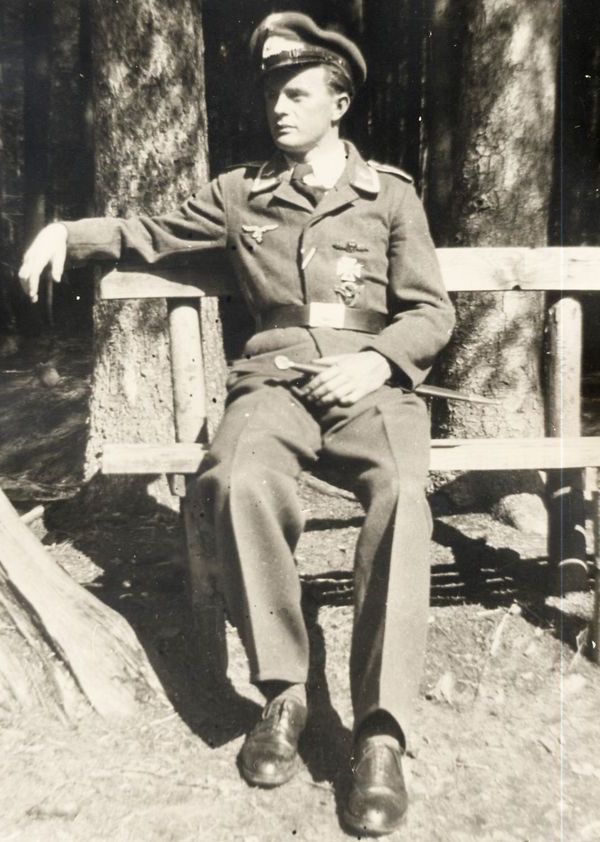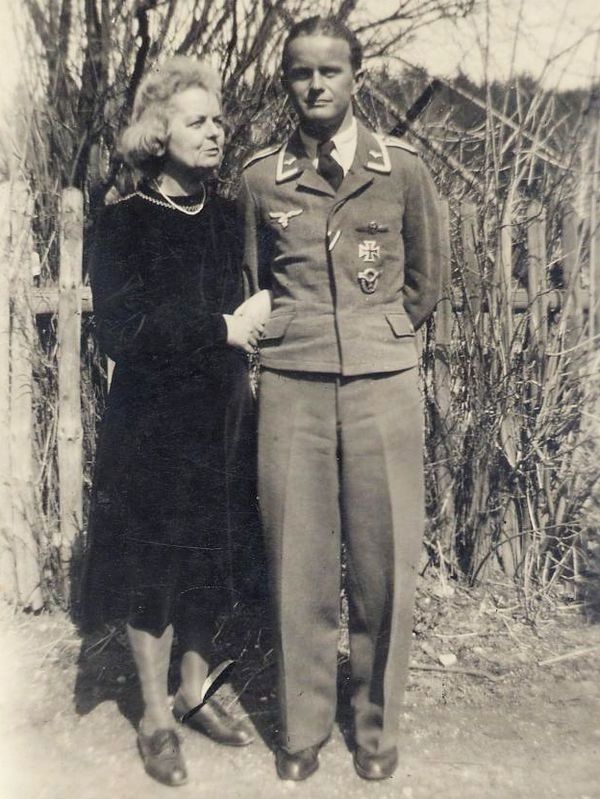Personnel Index - Detail
15/16 August, 1943; MILAN:
A force of 199 Lancasters made a concentrated attack on a now exhausted Milan, but this time as the crews returned across France the German fighters were waiting. Seven Lancasters failed to return home. 49 Squadron had dispatched 8 aircraft of which one failed to return: It is believed that P/O Leslie Gospel and crew were hit by flak on their homeward leg. The Lancaster crashed near Rugles in France, at 02.45hrs. Two of the crew survived, and both managed to escape back to England. Tragically one of them, Sgt Philo, was later killed on ops (3-4-45).
The remainder are buried at Cheronvilliers, France.
Lancaster LM337 (EA-V)
P/O L.W. Gospel Pilot (Killed)
Sgt R. James F/E (Killed)
Sgt C. Witheridge RCAF NAV (Evader)
Sgt H. Hedge W/AG (Killed)
F/S C.W. Taylor RAAF A/G (Killed)
Sgt S.J. Philo B/A (Evader)
Sgt A.E. Huntingford A/G (Killed)
Research by Colin Cripps:
Shot down by combination of Uffz Albrecht Kreuzer 2./JG2 and by light Flak.
Further information received from Harald Kreuzer (nephew of Albert):
Albert was an Unteroffizier and flying in the second Staffel of the Jagdgeschwader 2 "Richthofen" (2./JG 2)
He was killed on May 11th by an US P-47 fighter pilot named Robert McIntosh.
(Harald's family only knew that he did not return from a combat flight against more than 50 US P-47 air-planes)
Uffz Albert Kreuzer's plane disintegrated in the air and he has no known grave.

The section from Albert's logbook (click this link for a larger image.......opens in a new window)
The flight, No:25 shows the pilot's name, aircraft type and number, reason for the flight (night combat) and the details of the departure (airfield and times).
His notes mistakenly identify the bomber as a Halifax but states that he shot down the bomber near Cheronvilliers (4km ENE of L'Aigle).

Albert Kreuzer in full uniform with badges and medals.
These are (from top to bottom):
"Frontflugspange für Jäger", which he received after 20 combat flights.
"Eiserne Kreuz erster Klasse".
The flying eagle inside a wreath.......the sign of a pilot.
On the second button hole you can see a triangle shaped ribbon, which indicates the "Eiserne Kreuz zweiter Klasse".
The dagger was part of the pilot's uniform.

A different photograph of Albert with his mother.
This perfectly illustrates Harald's final comment concerning his family research.........."It will help me to demonstrate that human beings were involved in this cruel struggle".
All images courtesy of Harald Kreuzer.
